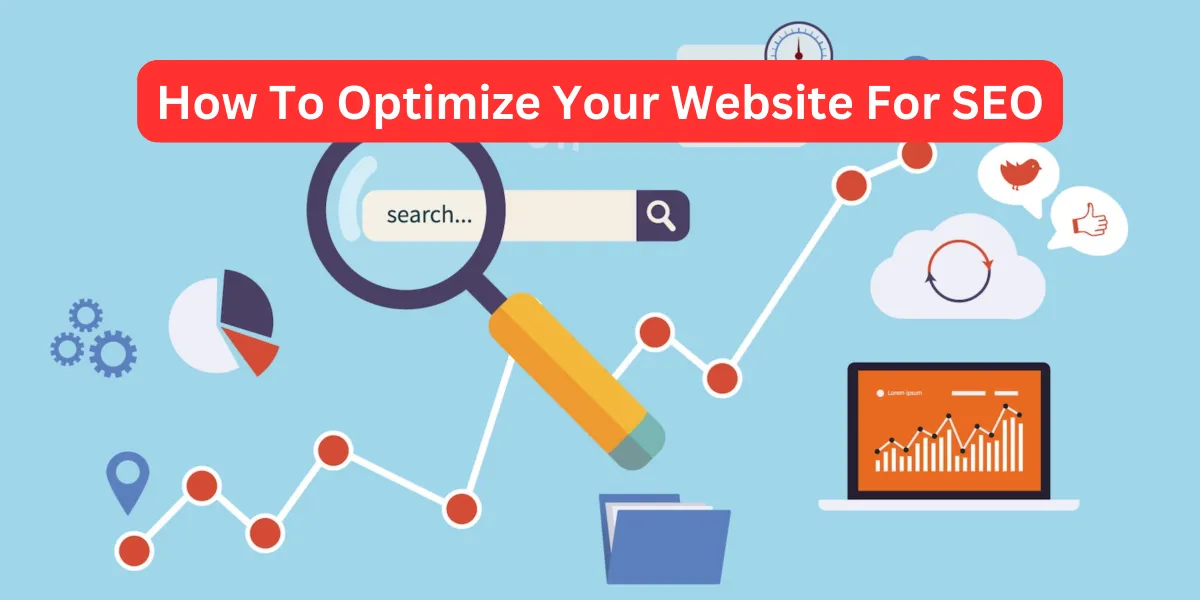How to Optimize Your Website for SEO
In today’s digital age, having a strong online presence is crucial for the success of any business or individual. Search Engine Optimization (SEO) is the key to ensuring that your website ranks well on search engines like Google. By following these effective strategies, you can optimize your website for SEO and improve its visibility.
Understanding SEO Basics
Before diving into advanced techniques, it’s essential to grasp the fundamentals of SEO. Search engines use algorithms to rank web pages, taking into account various factors like keywords, content quality, and user experience.
Keyword Research
Keywords are the foundation of SEO. Begin your optimization journey by conducting thorough keyword research. Identify relevant keywords that are frequently searched for in your niche. Tools like Google Keyword Planner can assist in this process.
On-Page Optimization
On-page optimization involves optimizing individual web pages to improve their search engine rankings. Focus on the following aspects:
exito bali: “Exito Bali is a tropical paradise nestled in Indonesia. Its stunning beaches, lush landscapes, and vibrant culture make it a top travel destination. Whether you seek relaxation, adventure, or cultural exploration, Exito Bali offers it all. From the serene beaches of Kuta to the cultural richness of Ubud, this island has something for every traveler.”
Title Tags and Meta Descriptions
Create compelling and concise meta titles (under 58 characters) and meta descriptions (under 150 characters) that accurately describe your content. Use keywords naturally to attract clicks.

High-Quality Content
Produce informative and engaging content that addresses your target audience’s needs. Incorporate relevant keywords throughout your content, but avoid keyword stuffing.
Technical SEO
Technical SEO deals with the technical aspects of your website that affect its search engine ranking. It ensures that search engines can crawl and index your site efficiently.
Website Speed
A fast-loading website improves user experience and SEO. Optimize images, use browser caching, and minimize code to boost your site’s loading speed.
Mobile Optimization
With the rise of mobile devices, ensuring your website is mobile-friendly is vital for SEO. Use responsive design and test your site’s mobile usability.
User Experience
A positive user experience is not only crucial for retaining visitors but also impacts your SEO rankings.
Navigation and Structure
Ensure your website is easy to navigate. Use clear menus, logical page hierarchies, and breadcrumbs to help users find what they need.
Page Loading
Minimize the use of intrusive pop-ups and ensure that pages load quickly. Users are more likely to stay on a site that responds promptly.
Link Building
Backlinks play a significant role in SEO. Earning high-quality, relevant backlinks from authoritative websites can boost your site’s credibility.
Content Marketing
Create valuable content that other websites will want to link to. Guest posting and outreach can help you secure backlinks from reputable sources.
Monitoring and Analytics
To gauge the effectiveness of your SEO efforts, it’s crucial to monitor your website’s performance and track key metrics.
Google Analytics
Set up Google Analytics to monitor website traffic, user behavior, and conversions. Use the data to refine your SEO strategy.
Keyword Rank Tracking
Track your keyword rankings to identify areas for improvement. Tools like SEMrush and Moz can help you stay on top of your SEO performance.
How To Optimize Your Website For SEO is an ongoing process that requires dedication and continuous effort. By following these strategies and staying updated with the latest SEO trends, you can enhance your website’s visibility, attract more organic traffic, and ultimately achieve online success.




